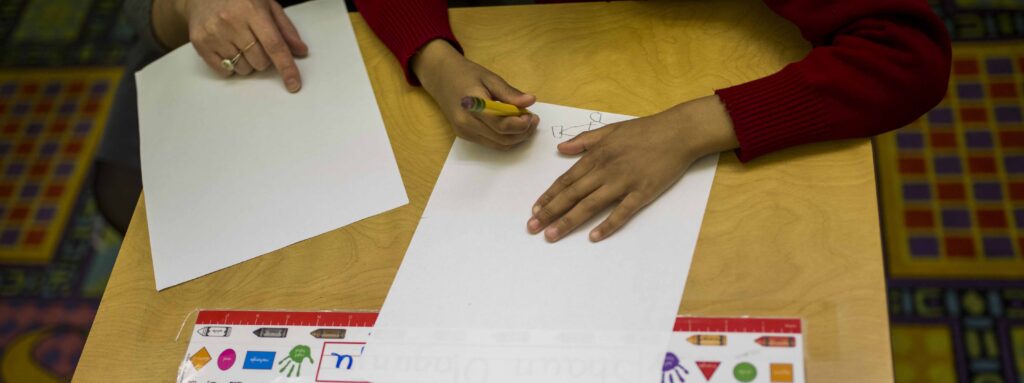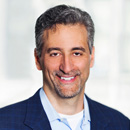In 2018, we asked 4,000 kids about their school experiences in The Opportunity Myth. We wanted to learn from students themselves how the education system could better serve them. But this wasn’t research for the sake of a thought experiment. Our goal was for these students’ perspectives to change our work—to guide us and others in the field toward giving students the kinds of school experiences they want and deserve. We concluded the report by asking all adults working in education to make two commitments: First, that “every student have access to grade-appropriate assignments, strong instruction, deep engagement, and teachers with high expectations, every day.” And second, that “every student and family is an authentic partner and should have real opportunities to shape the experiences students have in school.”
But making commitments in the abstract won’t give students and families what they need. If we want to undertake these commitments, we need to back them up with immediate action steps.
So, to wrap up the year, we’ve asked education leaders to share their new year’s resolutions—what they’re going to do—to improve student experiences in 2019. From teachers to school system leaders to activists, these folks offer their unique perspectives and fresh ideas that have us excited for what’s to come. We’ve asked students and families to share their resolutions, too, since we all have a role to play in improving school experiences for kids.
Here’s my resolution (one of them, anyway): I have the great privilege of visiting schools and school systems each year through our work in dozens of communities across the country. In each place I visit in 2019, I am going to elevate the stories, aspirations, and voices of local students, parents, educators, and community members. I will seek out those who speak languages I don’t speak and have roots in neighborhoods where I don’t, to ensure I and those around me put their expertise to use as we work to give our kids the great schools they deserve. That’s a first step—just a baby step, really—but I think it’s an important place to start.
What’s your education resolution for 2019? We hope you enjoy hearing from these diverse voices, and that you’ll join us in committing to improve school experiences for the students in your lives this year.
STUDENTS AND FAMILIES
Julie Hajducky, Ninth-Grade Student and Member of Bridgeport Generation Now
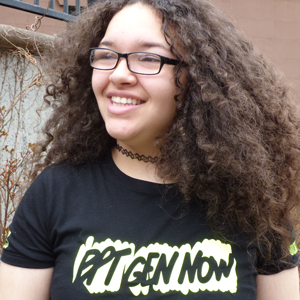 “With the student organizing around the Parkland shooting in 2018, I saw the power of students’ voices as a force for change, as well as the need for more diverse student voices to speak up and be heard. So, in my community I want to use what I’ve learned getting involved in Bridgeport to foster relationship building between students and elected officials like city council and school board members. I’m collaborating with Bridgeport Generation Now to start a youth-lead organizing collective at a local high school called Bridgeport Student Voice. Our long-term mission is to engage students at the policy level of education and influence systemic change in that way, but right now we’re starting with fostering relationships between students and teachers and integrating student voice in the classroom.
“With the student organizing around the Parkland shooting in 2018, I saw the power of students’ voices as a force for change, as well as the need for more diverse student voices to speak up and be heard. So, in my community I want to use what I’ve learned getting involved in Bridgeport to foster relationship building between students and elected officials like city council and school board members. I’m collaborating with Bridgeport Generation Now to start a youth-lead organizing collective at a local high school called Bridgeport Student Voice. Our long-term mission is to engage students at the policy level of education and influence systemic change in that way, but right now we’re starting with fostering relationships between students and teachers and integrating student voice in the classroom.
Personally, I want to do advocacy about incorporating more psychology and growth mindset work into the classroom to address the need for high expectations in The Opportunity Myth. Also, advocating for an increased number of teachers of color as we’ve seen how important these educators are to students like me.” –Julie Hajducky, Ninth-Grade Student and Member of Bridgeport Generation Now
Lia Martin, Advocate, Parent, TV Sitcom Writer, and Blogger
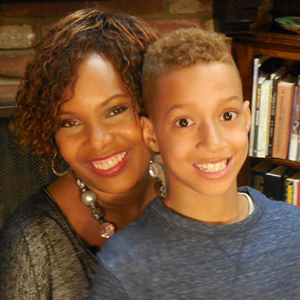 “I write for Understood, which is directed at parents, caregivers, and students who have special needs and who are different learners. As a parent of color, I have a personal goal of getting rid of the stigma associated with special needs in our community. I hope that by sharing my story, others not only come out and identify or get their students tested and identified, but then take the next step of ensuring districts give students the support that they need.
“I write for Understood, which is directed at parents, caregivers, and students who have special needs and who are different learners. As a parent of color, I have a personal goal of getting rid of the stigma associated with special needs in our community. I hope that by sharing my story, others not only come out and identify or get their students tested and identified, but then take the next step of ensuring districts give students the support that they need.
Most people have some gift, and it may not show up in a way that is easily measurable. It may be a soft skill. Their gift may be that of great communication or building lasting friendships, which also means that they have leadership skills. Long-term I’m interested in creating a school environment for students who are different learners in addition to being gifted. We don’t necessarily have anything like that in our district. And I think that’s an important part of the population that is not being properly served.” –Lia Martin, Advocate, Parent, TV Sitcom Writer, and Blogger
Kimberly Pham, Opportunity Youth Leader
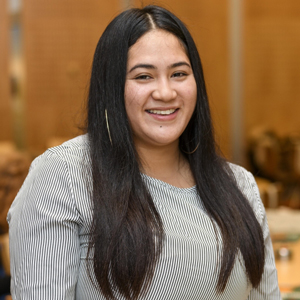 “I was a young person who was disconnected from the system. I left high school because there were massive budget cuts, and the gifted program at my school was shut down. I no longer felt challenged. Now, I am studying undergraduate social work in college and focusing on the opportunity youth population, addressing inequities in education that hold students like me back.
“I was a young person who was disconnected from the system. I left high school because there were massive budget cuts, and the gifted program at my school was shut down. I no longer felt challenged. Now, I am studying undergraduate social work in college and focusing on the opportunity youth population, addressing inequities in education that hold students like me back.
Next year, I want to spend more time as a liaison between my community and the education system. Coming from a zip code that’s underserved and under-resourced, I think it’s important we work for change that will help our city today, not years from now. Not that we should put Band-Aids over systemic problems, but we need to look at programs we can get off the ground now that will better support students; things like increasing transparency around programs that exist and working with schools and education programs to show them the importance of meeting young people where they are. Our youth disconnection rate in Philadelphia is pretty high, and we’re at a point where we as organizations that serve young people have to meet young people where they are, and not just expect them to come to us.” –Kimberly Pham, Opportunity Youth Leader
Jose Romero, English and Education Student at SUNY Geneseo
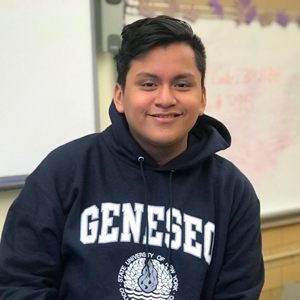 “Growing up, I was in ESL classrooms until fifth or sixth grade. Even though the classes helped me, at some point, they hindered my growth because I thought I was not as smart as kids in other classes. So, in 2019, I’m looking forward to continuing to be a resource to those who I can actually help—students like me.
“Growing up, I was in ESL classrooms until fifth or sixth grade. Even though the classes helped me, at some point, they hindered my growth because I thought I was not as smart as kids in other classes. So, in 2019, I’m looking forward to continuing to be a resource to those who I can actually help—students like me.
Right now, I’m doing that in two ways. One is that I’m a tutor with Together, an English immersion program that allows immigrants from Spanish-speaking countries an opportunity to learn English and basic math skills. I’m also part of the Speech Buddies program at my school, where I mentor an international student from Japan. The type of English he learned to pass the TOEFL to get into college doesn’t include things like slang and how to integrate himself the community, so we spend a lot of time working on his ability to talk about things like culture and current events.” –Jose Romero, English and Education Student at SUNY Geneseo
Justin Thach, 12th-Grade Student and Member of Oregon Student Voice
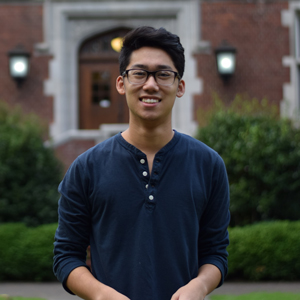 “I’m graduating from high school at the end of this school year, and I want the legacy I leave behind to provide a tangible example of someone who can overcome odds, and show that challenges aren’t just obstacles to overcome, but rather points of reflection where you can think about what has happened, why it’s happened, and how you can fix that for other people.
“I’m graduating from high school at the end of this school year, and I want the legacy I leave behind to provide a tangible example of someone who can overcome odds, and show that challenges aren’t just obstacles to overcome, but rather points of reflection where you can think about what has happened, why it’s happened, and how you can fix that for other people.
I think that the biggest thing that we can do is to cultivate a mindset collectively and individually, to show that students can be directors of their own educations, as opposed to following a system.
Something that’s really beautiful about Millennial and Gen Z culture is that we take advantage of all the resources that we have with Twitter, Instagram, and Facebook to make our voices heard. Through my work with student voice, I’ve seen how self-expression is an important step to someone taking control over their education. So, next year, I’m going to get high school seniors like me together to go and mentor middle school kids and help them develop that sense of self-expression and agency that will teach them to reconsider their educations from a different angle.” –Justin Thach, 12th-Grade Student and Member of Oregon Student Voice
TEACHERS AND SCHOOL LEADERS
Isobel Dewey, Teacher and STEM Program Director at Mastery Charter Gratz Campus
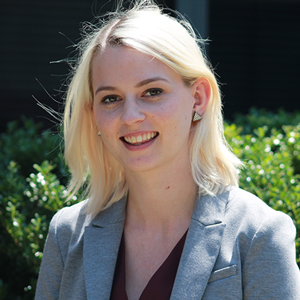 “Since reading The Opportunity Myth, I’ve been thinking about how to improve technological literacy across all sectors of my school. Most of my students’ wealthy white suburban peers at other schools have access to computer science courses and technological resources. I think we’re doing a really good job offering opportunities to becoming tech literate to some of our top performers. But I want to make sure that all students at our school get an opportunity to become technologically literate in the next school year. That will look like all kids having access to coding courses, and expanding our offerings to make sure that any student who is interested in designing an app or building a website or video game has that option.
“Since reading The Opportunity Myth, I’ve been thinking about how to improve technological literacy across all sectors of my school. Most of my students’ wealthy white suburban peers at other schools have access to computer science courses and technological resources. I think we’re doing a really good job offering opportunities to becoming tech literate to some of our top performers. But I want to make sure that all students at our school get an opportunity to become technologically literate in the next school year. That will look like all kids having access to coding courses, and expanding our offerings to make sure that any student who is interested in designing an app or building a website or video game has that option.
I’m also looking forward to 2019 because our STEM program is going to be graduating its first class of 12th graders. I think everybody knows there’s a huge tech diversity issue, but we have this wealth of students who not only have the interest, but now they have the skills to change things. So, beyond anything, I’m just excited to see what they do when they go out into the world.” –Isobel Dewey, Teacher and STEM Program Director at Mastery Charter Gratz Campus
Yvonne Joyce, Parent and Math Teacher at West Haven High
 “My focus for this coming year is to learn how to help the quitting students. As an educator, it can be very stressful teaching almost thirty kids, and easier to focus on the 29 kids that are paying attention and ignore the one kid who isn’t. So, my goal this year is to pay more attention and have higher expectations for all 30 of my students.
“My focus for this coming year is to learn how to help the quitting students. As an educator, it can be very stressful teaching almost thirty kids, and easier to focus on the 29 kids that are paying attention and ignore the one kid who isn’t. So, my goal this year is to pay more attention and have higher expectations for all 30 of my students.
When it comes to my own kids, seven- and 14-year-old boys, my ultimate goal is to make sure they’re educated well enough to achieve their dreams. And it’s the same for my students. There’s a running joke where the staff always say, ‘That’s one of Yvonne’s kids,’ because it’s the truth. I do see them as my kids. I try my hardest to look at every student, brown or white, as, ‘This is my child, and what would I want for them?’ I tell everyone when they walk in my classroom, ‘I don’t care how much you like math. I don’t even care if you’re great at math at the end of my class. I just care that you have the skills to go to the next level in whatever way you want.’” –Yvonne Joyce, Parent and Math Teacher at West Haven High
William Shelton, LGBTQIA+ Activist, and Teacher and Apprentice Dean of Culture at Wissahickon Charter School, Awbury Campus
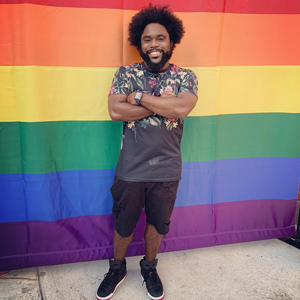 “Too often, kids of color that are LGBTQIA+ endure trauma and stress that stops them from excelling academically and emotionally. Also, the majority of our teachers and staff are not trained to assist LGBTQIA+ students or ensure their curriculum includes LGBTQIA+ material, history, and literature. My goal is to help change this.
“Too often, kids of color that are LGBTQIA+ endure trauma and stress that stops them from excelling academically and emotionally. Also, the majority of our teachers and staff are not trained to assist LGBTQIA+ students or ensure their curriculum includes LGBTQIA+ material, history, and literature. My goal is to help change this.
In addition to my responsibilities as Apprentice Dean, I teach middle school English and social studies electives, and during lunch, I run a boy’s group where we talk about issues in their community and their plans to achieve their dreams. I incorporate LGBTQIA+ issues in all of this, but next year I am going to push myself to reach students beyond my classroom and work with other teachers to reinforce these messages.
Outside of work, I am president of the Philadelphia chapter of Kappa Psi Kappa Fraternity Incorporated where next year we’re going to be giving college workshops with the Children’s Hospital of Philadelphia to LGBTQIA+ kids. We know there is a lot more the education system should be doing when it comes to preparing our most vulnerable kids for their futures, and we want to do what we can to help.” –William Shelton, LGBTQIA+ Activist, and Teacher and Apprentice Dean of Culture at Wissahickon Charter School, Awbury Campus
SCHOOL SYSTEM AND NON-PROFIT LEADERS
Dr. Kriner Cash, Superintendent of Buffalo Public Schools
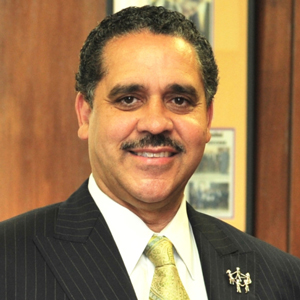 “In the past, there was a mindset that our students probably couldn’t achieve at a very high level. Everything had been ratcheted down over time—expectations, the quality of experiences for some students versus other students, and on and on. We’re starting to turn the ship in a direction where we can actually deliver on the recommendations that came out of The Opportunity Myth. We’ve already started to adopt new instructional priorities for English language arts and math in particular. We already have some decent materials, and we’re continuing to train teachers in-depth on how to deliver those materials and hold students to those high expectations. We’re working to change our staff’s mindsets—teachers and everyone—around what these children can achieve.
“In the past, there was a mindset that our students probably couldn’t achieve at a very high level. Everything had been ratcheted down over time—expectations, the quality of experiences for some students versus other students, and on and on. We’re starting to turn the ship in a direction where we can actually deliver on the recommendations that came out of The Opportunity Myth. We’ve already started to adopt new instructional priorities for English language arts and math in particular. We already have some decent materials, and we’re continuing to train teachers in-depth on how to deliver those materials and hold students to those high expectations. We’re working to change our staff’s mindsets—teachers and everyone—around what these children can achieve.
So, we’re in route. We’re not done. I’m very encouraged about where we’ll be next year, at the end of this year, and each year thereafter.” –Dr. Kriner Cash, Superintendent of Buffalo Public Schools
Brett Noble, Director of Humanities at KIPP ENC Public Schools
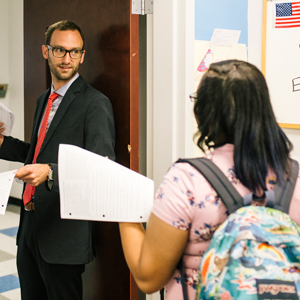 “A big goal for 2019 is being more open and honest about my journey along understanding white privilege and the ways that I consciously and subconsciously contribute to systemic injustices. This means, one, a lot more reading, and two, a lot more conversation starting.
“A big goal for 2019 is being more open and honest about my journey along understanding white privilege and the ways that I consciously and subconsciously contribute to systemic injustices. This means, one, a lot more reading, and two, a lot more conversation starting.
Too often, folks believe when it comes to racism you either are or you aren’t, but this type of thinking doesn’t solve the problems we perpetuate and the injustices we witness. If we’re going to create a workspace where we model dismantling systems of oppression rather than perpetuating them, we have to be honest with ourselves, our colleagues, and our students.
Another goal I have is around making intellectual prep a major priority for teachers. To me, intellectual prep means you have deeply internalized the content and skills of your lesson so that you are truly the expert on that lesson. More specifically, this means you know the standard you are teaching and how it will be assessed at the end of the lesson in a way that parallels the way it will be assessed at the end of the course.
With The Opportunity Myth, we saw how little intellectual prep work teachers tend to put in day to day, and the impact that that has on students. If a teacher hasn’t done the work and doesn’t know where the bar ought to be, then they’re never going to get their students where they need to be.” –Brett Noble, Director of Humanities at KIPP ENC Public Schools
Marvin Pierre, Executive Director of Eight Million Stories
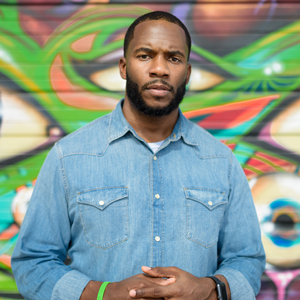 “We don’t have the right to tell a kid who they’re going to be and who they’re not going to be. We have to shift that mindset, and I’m committed to using Eight Million Stories and the success of the program to be a voice at the local and national level showing what can happen when we put the right resources in front of our young people.
“We don’t have the right to tell a kid who they’re going to be and who they’re not going to be. We have to shift that mindset, and I’m committed to using Eight Million Stories and the success of the program to be a voice at the local and national level showing what can happen when we put the right resources in front of our young people.
I tell my kids every day I’m going to hold them accountable. I tell them, ‘I won’t send you home unless you are a threat to the community. You’re not getting sent out of class because you’re asleep. You don’t get sent out of class because you broke the dress code.’ We’re going to correct those behaviors, obviously, but I’m not sending kids back out to the street because then I become no better than the system that is destroying them. We need people who believe all things are possible for our kids; people who will work extremely hard and dream as big as they can to create a world of equity for all children. That’s what I’ve been committed to since we started. It’s up to us to work as hard as we can to find that inner drive I believe every kid has. We have to be relentless every day.” –Marvin Pierre, Executive Director of Eight Million Stories
Dr. Sonja Brookins Santelises, CEO of Baltimore City Public Schools
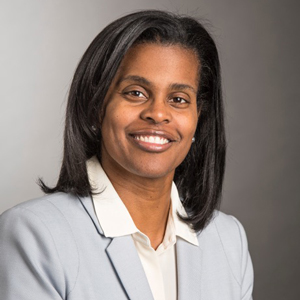
“With support from the Gates Foundation, we’re developing a new course of study for young people in Baltimore City. It’s designed to help students in middle and high school develop their knowledge of Baltimore history from a variety of standpoints, building on and from recent events in the city that young people really care about and are relevant to the city’s history. We’re really committing to giving young people the kinds of learning experiences that not only give them rich content, but also matter to them.
We’re also asking ourselves explicitly what the teaching needs to look like. It’s fine to develop a great curriculum that links to rigorous standards and enables young people to interject their own ideas to learn about their city. But delivering on a great curriculum also requires relationships to be built between students and their teachers. We’re working to bridge that gap between student interest and development of concrete academic skills that help young people succeed in college and beyond. Long term, we want to have more young people who experience learning that matches their aspirations. The challenge is not young people without dreams. It’s young people with dreams who also need the skills and experiences that prepare them to achieve those dreams.” –Dr. Sonja Brookins Santelises, CEO of Baltimore City Public Schools
